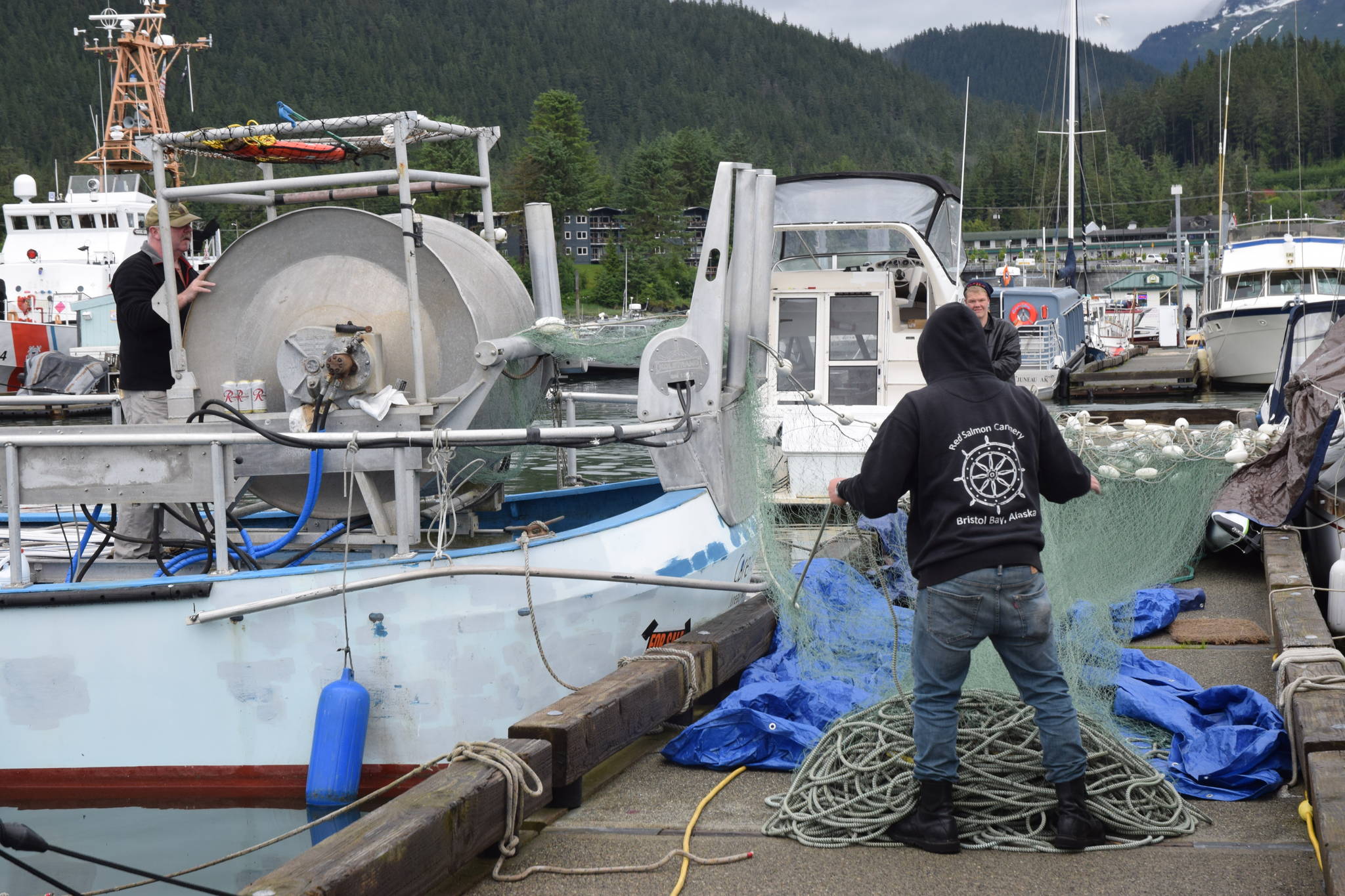Boats don’t have wheels. This may go without saying, but as Juneau commercial fisherman Brian Delay joked Friday at Don D. Statter Harbor, it’s worth remembering.
“It’s a good thing our boats don’t have wheels,” Delay said, “because if they did, we’d be driving them through the front door of the Capitol.”
Though he was speaking figuratively, Delay wasn’t being hyperbolic. Juneau gillnetters are frustrated. They start their season Sunday under uncertain seas: Not knowing what could happen in the event of a July 1 government shutdown, salmon management could be curtailed or shut down during the most lucrative part of the gillnet season.
The Alaska Department of Fish &Game sets time limits and other regulations for salmon fishermen to ensure enough fish get upriver and past nets to spawn. Without those regulations, fishermen won’t be allowed to fish.
ADF&G has said they won’t pull vital management teams from the field, and they’re working closely with the Department of Law to figure out how they can still fund salmon regulation without a constitutionally mandated budget.
But a smooth season of salmon regulation is no guarantee. For Juneau gillnetters, any hiccups in ADF&G management would be particularly untimely. The chum salmon runs in Lynn Canal and Taku Inlet, water bodies on opposite sides of Juneau, both peak in July for gillnet fishermen. (Gillnetters fish with long nets topped with a floating “cork line” and weighted down by a “lead line.”)
Every Friday, Juneau gillnetters look for announcements from Fish &Game that dictate an “opening” that tells fishermen where and when they can fish during the week. These first few openings — which last anywhere from 24 to 96 hours or longer — there aren’t many fish, said gillnetter Dave Meiners.
But those July openings are crucial.
“The first few openings, there isn’t much. But the next few openings, that’s the meat of the chum season,” Meiners said while walking to his boat, the Daybreak. “And if there’s a problem with Fish &Game, if there are some issues there, the fishermen are going to lose out, so there’s a lot riding on it.”
Meiners passed by Mike Wallace’s boat, the Annie V. Wallace’s friend and fellow gillnet captain Shane Hostetler said he doesn’t understand why it’s taking the Legislature so long to put a budget together.
“These guys don’t know how to spend what they’ve got, that’s my opinion. I’ve seen the state when they could balance the budget for $55 a barrel of oil, but as oil went up, they just followed it all the way up to $155. They just spend as much as they’ve got,” Hostetler said.
Several other fishermen popped in and out as Hostetler and Wallace gave their opinions on the state shutdown. Many described themselves as politically independent. Wallace said he leans conservative.
They all agreed that a July shutdown would be a business killer.
“It’s how I make my money for the whole year.If they don’t let me go, I am screwed,” Wallace said. “July 1 is the peak for us.”
A lapse in management wouldn’t just affect this season, Wallace pointed out, but future management as well. Fish &Game depends on data taken year-to-year to determine the health of salmon runs and regulate fisheries.
As Wallace put it, “If they’re not up in the creeks watching what’s going on, then they ain’t going to know what to do in the future, so they’re going to be shooting in the dark trying to figure out a schedule.”
When asked, the five gillnet captains the Empire spoke to said the important thing is just to get a budget done. The details aren’t as important.
Delay said he’s OK with an income tax or getting his Permanent Fund Dividend taken away. He’s young and can still work. The most important thing is that the state continues to let him do so.
“Everyone feels entitled to a PFD. I’m a fisherman, I’ll pay income taxes,” Delay said. “You can have my PFD, you know, but you got to let me go to work. Or if you don’t let me go to work, then I am really going to want my PFD.”
• Contact reporter Kevin Gullufsen at 523-2228 or kevin.gullufsen@juneauempire.com

